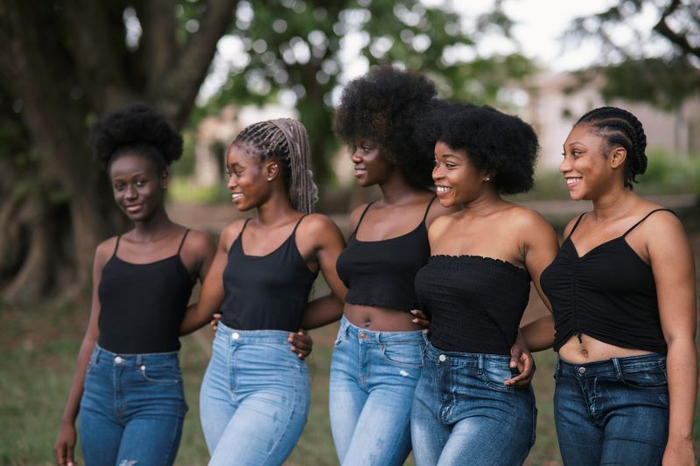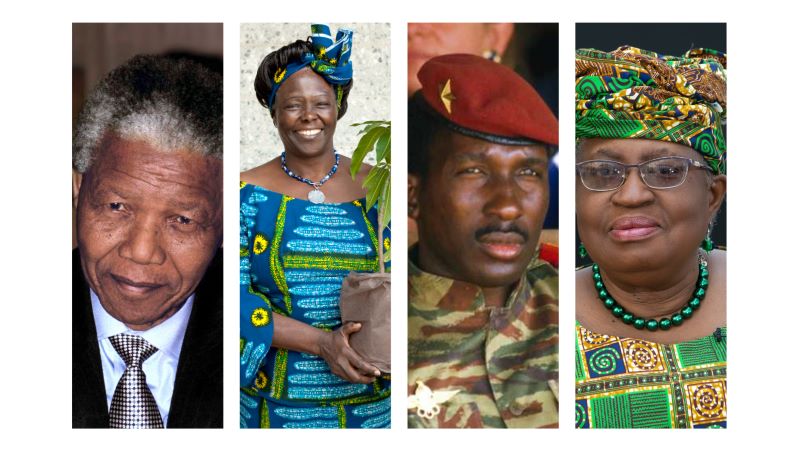Photo by Tony James-Andersson
“Each time a woman stands up for herself, without knowing it possibly, without claiming it, she stands up for all women.” —Maya Angelou
Women still find themselves strongly disadvantaged (yes, even in 2024). From time immemorial, women have been fighting for their rights. From the fight for women’s suffrage to women’s marches and the digital age’s #MeToo movement, the history of feminism is as long as it is fascinating. Feminism, a word that can inspire passion, confusion, or even outright hostility, has evolved, adapted, and persisted. Many have given it different meanings and others associate it with misandry or man-hating. These stereotypes have caused some women to publicly denounce the movement. But let’s get one thing straight – feminism isn’t about hating men. It’s about equality. It’s about recognizing that women are human beings deserving of the same rights, opportunities, and respect as the other gender.
The world has been led by men, in politics, business, and even religion. According to the UN Women in politics map 2023, women are underrepresented at all levels of decision-making worldwide, proof that gender parity is far off. In many Muslim countries, specifically those governed by sharia law, women are completely under male dominance, limiting their rights and freedoms. In some parts of the world, women are not allowed to hold certain positions, not because they are incapable, but because their gender puts them at a disadvantage.
In different parts of the world, men still retain control over decisions regarding women’s bodies, maternal decisions, birth control, and how they should dress. In some cultures, women are still seen as property to their husbands. There are also issues of sexualization of young girls and child marriages. Just recently in Nigeria, the speaker of the Niger State Assembly, Abdulmalik Sarkin-Daji, announced plans to marry off 100 orphaned girls, some of whom are feared to be underage girls. Let’s not forget the domestic violence against women and the gender pay gap. So, to say women put up with a lot would be a bit of an understatement.
Progress so Far in the Feminist Movement
Looking at the journey so far, we can say that the feminist movement has made some significant strides. Thanks to decades of tireless activism, women today enjoy more rights and opportunities than ever before. We are seeing more women holding leadership positions. If we look around us, we will notice that more women than ever hold political decision-making posts worldwide compared to several years ago.
Let’s talk about women’s career options. They were pretty much limited to secretaries, teachers, nurses, and the like. Fast forward to today, women are challenging stereotypes and shattering records. Many are stepping out of traditional household roles and pursuing careers once believed to be for males. They are leading Fortune 500 companies and launching startups. Feminism has played a huge role in breaking down these stereotypes.
Though challenges persist, access to education for girls and women has expanded dramatically. New calculations by the Global Education Monitoring Report reveal that 50 million more girls have been enrolled in school globally since 2015. That’s progress, though we still have a long way to go especially in areas like sub-Saharan Africa, where girls remain far less likely to go to school, and Afghanistan, where girls are excluded from education.
Once upon a time, women were seen as property. They couldn’t vote, own land, or even keep their own money. Fast forward to today, women have gained the right to vote and own property. The fact that women can vote in almost every corner of the globe is a win, and it’s a pretty big deal.
Today, we have more women in the media, directing movies, playing superheroes, taking on lead roles, and winning Oscars. That’s a win we can all appreciate when binge-watching our favorite series.
Feminists raised awareness about gender discrimination, and today there are laws against discrimination based on sex in some places.

Image by freepik
Challenges in the Fight for Equality
Just when we think we are making progress, boom! More challenges spring up. Every time feminism takes two steps forward, there seems to be a shove backward. Whether it’s the resurgence of traditional gender roles, patriarchy raising its ugly head, or political leaders rolling back reproductive rights, there is always something trying to dampen the hard work put in over the years. Despite the progress so far, we cannot deny the pressing struggles of women and girls around the globe. Feminism is still facing too many challenges that make the journey to true equality seem like a herculean task.
First off, can we talk about how “feminism” is still a word that makes some people uncomfortable? Although feminism simply advocates for equality between the sexes, it’s often misunderstood and misrepresented. When some people hear the word, they associate it with angry, man-hating radicals. This inaccurate portrayal distracts from the movement’s positive goals. Feminists have to constantly push against this false narrative, which can be exhausting.
We’ve been talking about the wage gap for what feels like forever. Though there’s been progress, it seems to be moving at a snail speed. Women still earn 16% less than men on average. The Center for American Progress projects that gender pay equity won’t become a reality until 2056.
Why is it that, the higher you get in a company, the fewer women you see? Some companies still see women as less valuable. They would rather give men certain leadership roles than employ a woman. A friend experienced this bias some years back. She was the editor-in-chief at the time. She was surprised when the company decided to move her to a lower position months into her pregnancy. Guess who moved into her position? A male colleague who just joined the company some months back. Her only crime was being a woman and pregnant. She had to resign. Beyond equal pay, working women need flexible schedules to manage personal responsibilities without fear of losing their jobs.
Many young girls in parts of the world are still being denied their fundamental right to education due to gender inequality and discriminatory practices. 130 million girls are denied the human right to education around the world, according to UN experts. In Afghanistan, women and girls have been banned from going to school or working. They have also been banned from other public spaces like parks and gyms. Those who try to resist face terrible consequences including enforced disappearance, arbitrary detention, and torture. If education is a universal human right, why are millions of girls still being excluded from enjoying this right?
Let’s talk about how women have been fighting for ownership of their bodies. For centuries, laws and policies affecting women’s bodies have been crafted primarily by men, often without considering women’s perspectives. When the government controls what happens to a woman’s body, she is being treated as less than a fully adult human responsible for her own choices.
How about the policing of women’s clothing? A woman is raped, and who does society blame? The lady – for wearing “revealing” clothes. If her top shows a little cleavage, she’s trying to seduce a man. If her skirts are above her knees, she’s showing too many legs that will cause the men to stumble. You can’t wear this or that, it will distract your male colleagues. The rules are endless. Even if women were to stop wearing all the things that might have a chance of turning on a man, some men would still objectify women. Can we truly say we are making progress if decisions about women’s bodies or the way they dress are still decided by men?
Women are primary victims of sexual violence in conflict zones and are often targets of human trafficking and smuggling. They also face gender-based violence, even within the family context. From spousal beatings, marital rape, and forced marriage, to sexual abuse, women face a lot in society. According to the UN, nearly one in three women has experienced physical or sexual violence. This is equivalent to 736 million women worldwide. The normalization of such violence in many cultures highlights the urgent need for sustained activism and education.
What’s Next for the Feminist Movement?
António Guterres, UN Secretary-General, pointed out that progress toward gender equality was “vanishing before our eyes.” According to him, achieving gender equality and empowering women and girls are pending tasks of our time and constitute the greatest human rights challenge at the global level.
According to a UN Women’s report, at the current rate of progress, it will take 286 years for the world to achieve gender equality. This is a reminder that the fight for gender equality is an ongoing journey. Though it may take a while to get it, it is achievable with unwavering commitment and the collective action of all.
With unwavering determination, feminists have dismantled patriarchal systems. It’s important to remember that feminism isn’t just “a women’s issue”. It’s a human issue.
In as much as we have made progress, we need to remember that the fight is not over until everyone has a seat at the table, irrespective of gender. Until every woman around the world can have equal access to education, harmful gender stereotypes are a thing of the past, and gender-based violence is extinct, we cannot pat ourselves on the back. We’re not there yet, but as we take one step at a time, we get closer to achieving equality for all. So, let’s keep fighting the good fight, and one day, we will all look back at the bumpy road and hurdles we had to jump over and celebrate our victory. Until then, the fight continues.





